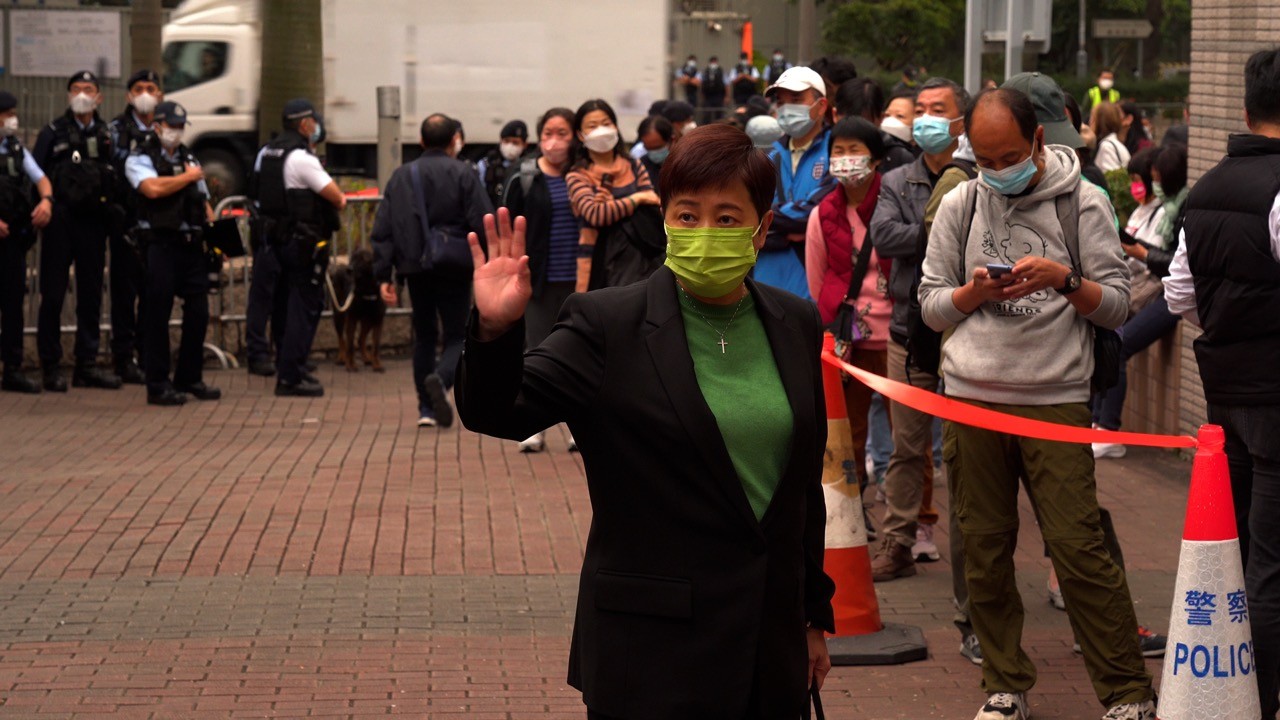
How Criminal Procedure Ordinance amendments can help prevent miscarriages of justice
- The Department of Justice is proposing the prosecution be allowed to appeal against a Court of First Instance judge’s ruling of no case to answer and three-judge panels’ acquittals in national security cases
- These amendments would help to maintain public confidence in the criminal justice system
On October 28, the Court of Appeal delivered one of its most disturbing judgments of recent times. After the secretary for justice had invoked an arcane legal procedure (“reference on a question of law”) to seek its opinion on the circumstances in which four defendants had been acquitted in three trials before two separate judges in the Court of First Instance, the Court of Appeal concluded that each case had “resulted in a serious miscarriage of justice”.
This situation arose because the judges had “impermissibly usurped the position of each jury and incorrectly withdrew the cases before their respective juries could consider them”. Although a judge can hold that a defendant has no case to answer if the evidence is deficient, it was improperly exercised in all three cases. As a result, four defendants facing grave charges of drug trafficking were set free after the juries were directed to acquit them, and they all then left Hong Kong.
One of the trials took a bizarre turn when the jury became so concerned at the course the judge was adopting that it challenged her direction to acquit the defendant, although the jury ultimately acquiesced. The situation that resulted, said the Court of Appeal, risked being seen by the public as “arbitrary and capricious conduct, which undermines not only the standing and dignity of judges but also, ultimately, confidence in the rule of law.”
The Court of Appeal also noted that there is no lawful mechanism in the Criminal Procedure Ordinance, such as exists in the United Kingdom, which enables the secretary for justice to appeal against an acquittal resulting from a wrongful ruling of no case to answer, and it considered this lacuna should be plugged.
The court’s call has been heeded, and, in January, the Department of Justice issued a consultation paper, containing its proposals. By virtue of the UK’s Criminal Justice Act 2003 (Section 58), British prosecutors already enjoy a general right of appeal against a trial judge’s rulings of no case to answer if considered flawed. Using this as a precedent, a right of appeal has now been proposed in respect of rulings by Court of First Instance judges that relate to one or more offences included in the indictment, and which were made at any time before the judge’s summing up.
What this means, therefore, is that, if a judge’s ruling has resulted in an unjust acquittal before a jury starts its deliberations, the matter can be rectified. If a judge has wrongly held that there is no case for a defendant to answer, the public interest clearly requires that there be a means of redress. The proposed mechanism, however, does not affect the jury’s own deliberations, let alone its ultimate verdict, which is reassuring.

In both the District Court and the Magistrates’ Courts, the secretary for justice has, for many years, enjoyed the right of appeal to a higher court (“appeal by way of case stated”) if a judge wrongly acquits a defendant because of a legal error. This is in the interests of justice, given that, if a defendant is to be acquitted, it should be based on the merits of the case not a judicial blunder.
Once the case reaches the Court of Appeal, it would be entitled, assuming the procedure is the same as in appeals from the District Court, to dispose of it in various ways. It may dismiss the appeal, or reverse the verdict and order that the trial be resumed, or direct that the defendant be retried. It may also (and this is historically very rare in Hong Kong) convict the defendant itself, and proceed to sentence.
If offences have endangered national security, they will necessarily be serious, and it is clearly unacceptable that the outcome of a defendant’s trial should be determined by a misapplication of the law. The interests of justice require that there should be a means of correcting mistakes, and the proposed mechanism, which has worked successfully for many years in respect of trials in the lower courts, will help to ensure just outcomes.
After all, a defendant can challenge his conviction if it is legally unsound, and nobody can seriously object if prosecutors, as custodians of the public interest, are also able to appeal against wrongful acquittals.
The two sets of proposals, therefore, are meritorious, and will help to prevent miscarriages of justice in the Court of First Instance. As and when they are presented to the Legislative Council, they will hopefully enjoy a fair wind. If so, this will help to maintain public confidence in the criminal justice system, always a desired objective.
Grenville Cross SC is a criminal justice analyst


